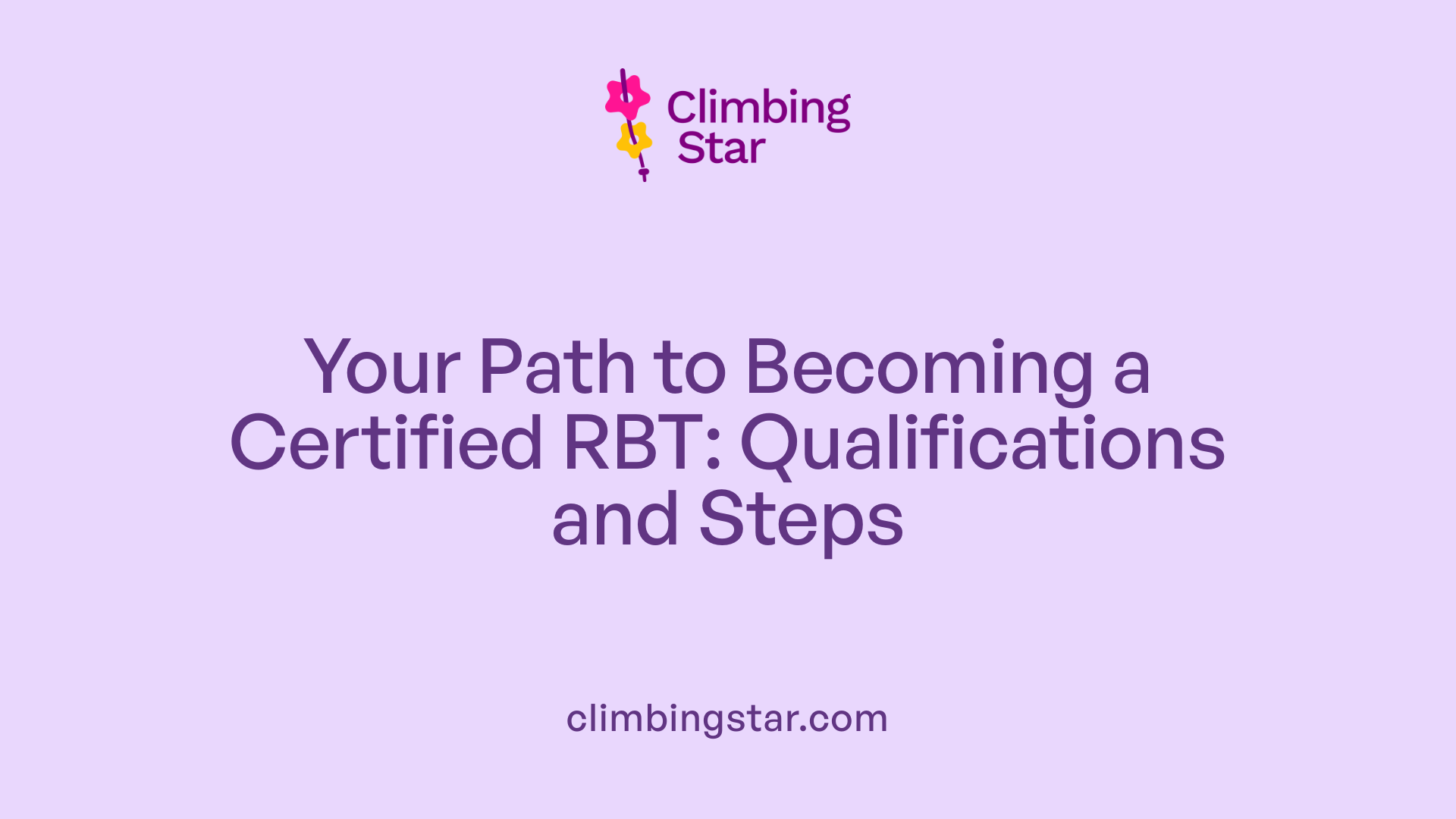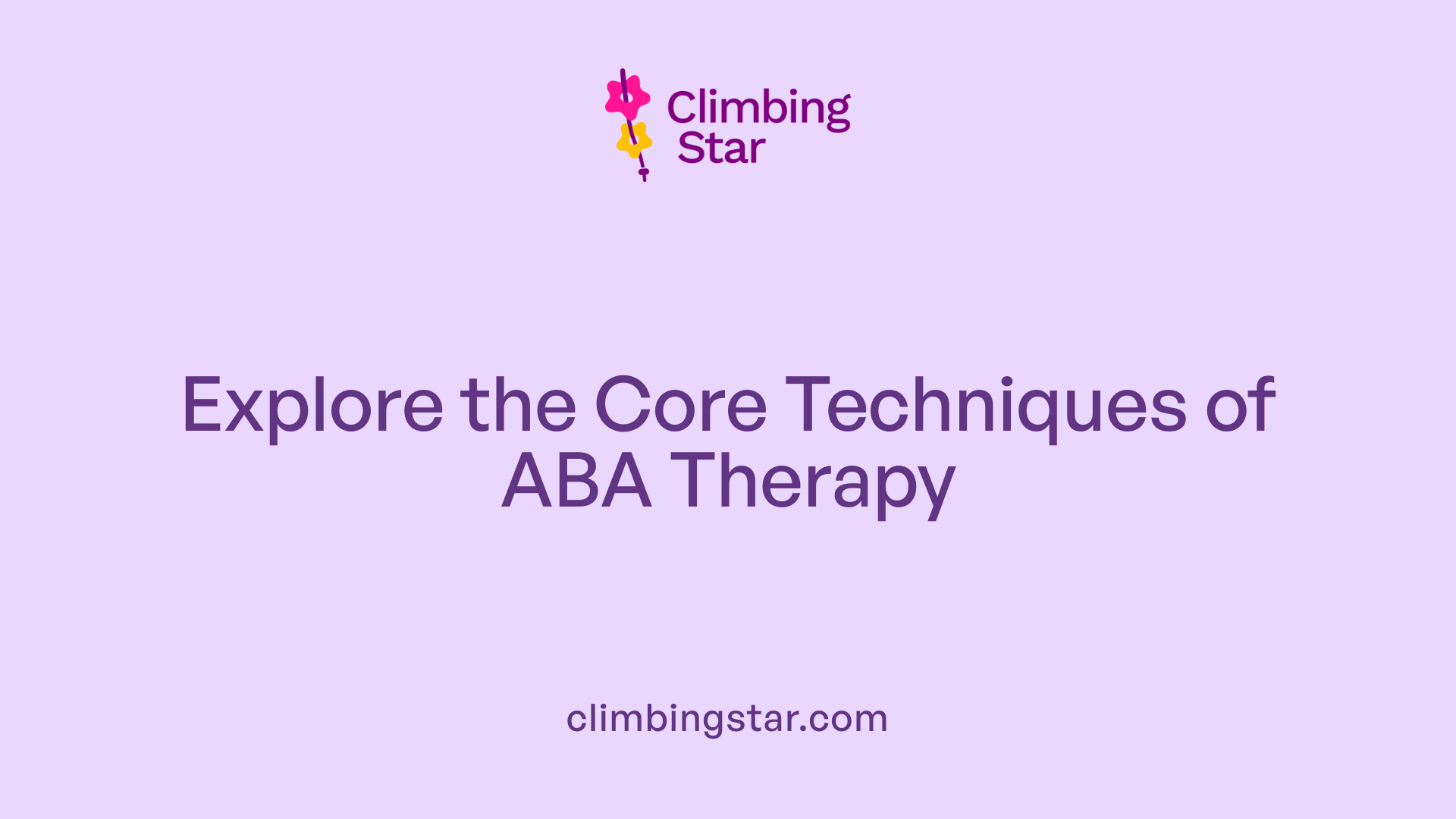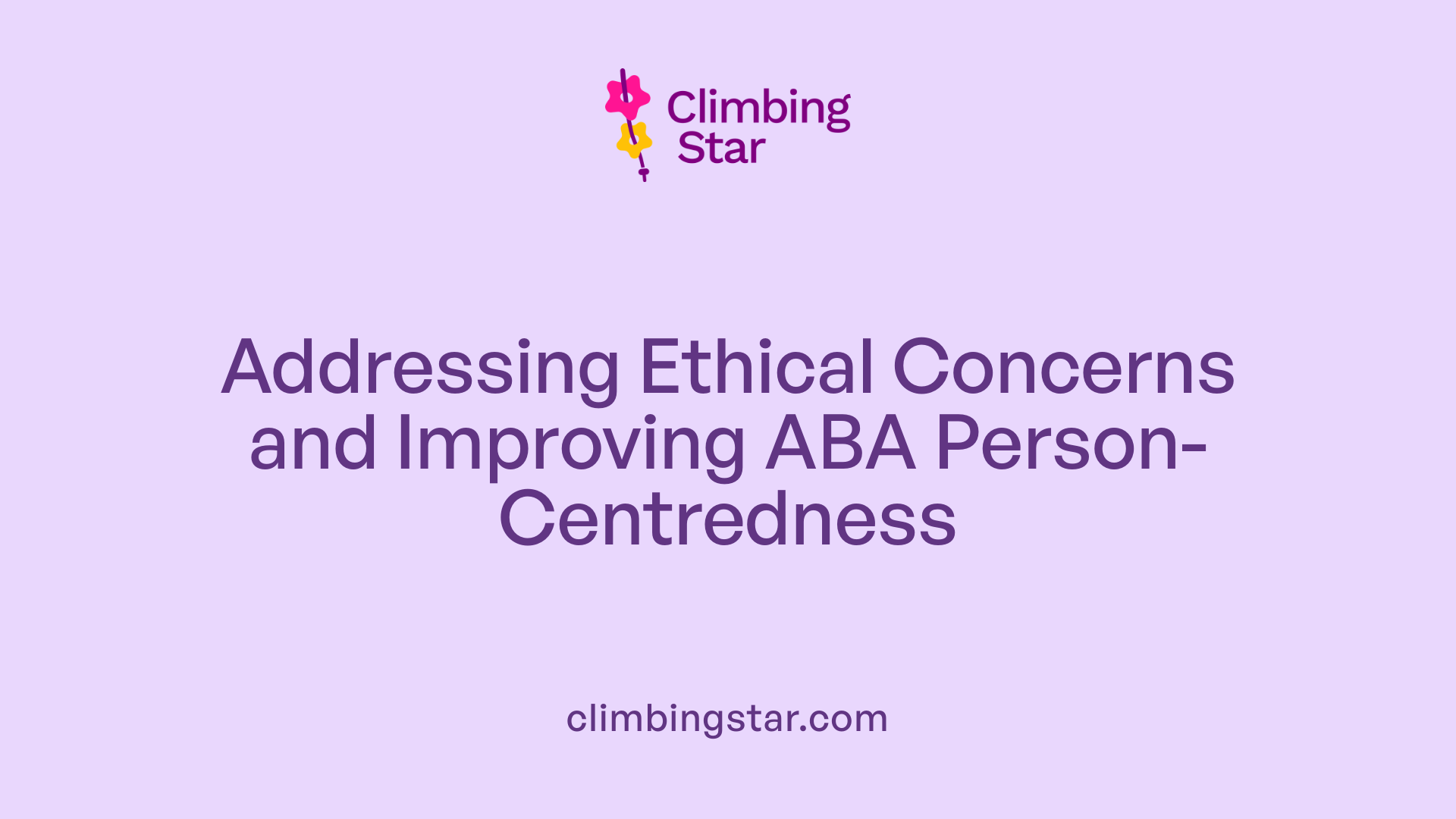Understanding the Importance of RBT Training
For individuals and professionals seeking to support those with Autism Spectrum Disorder (ASD), becoming a Registered Behavior Technician (RBT) offers a vital avenue to gain necessary skills and credentials. This article explores how free training opportunities are revolutionizing accessibility for aspiring RBTs, empowering more people to deliver effective Applied Behavior Analysis (ABA) therapy.
What is Applied Behavior Analysis (ABA) Therapy and Its Impact on Autism

What is Applied Behavior Analysis (ABA) therapy?
Applied Behavior Analysis (ABA) therapy is a scientifically validated approach centered on understanding and influencing human behavior in meaningful, observable ways. It focuses on encouraging positive behaviors like communication, social interaction, attention, and academic skills, while working to reduce harmful or disruptive behaviors. ABA relies on principles of learning theory and uses methods such as positive reinforcement, tailored goal-setting, breaking skills into manageable parts, and careful tracking of progress.
This therapy is overseen by certified professionals like Board-Certified Behavior Analysts (BCBAs) and delivered by trained technicians. Though primarily known for supporting individuals with Autism Spectrum Disorder (ASD), ABA methods are also effective in addressing behavioral challenges in various populations.
How does ABA therapy help individuals with autism?
ABA therapy aids those with autism by helping them acquire critical skills in language, communication, social interaction, and daily living activities. Techniques are customized to each person's unique needs and environments. Using approaches like analyzing behavior through antecedents, behaviors, and consequences (the "A-B-Cs"), therapists can identify strategies to promote beneficial behaviors and reduce problematic ones.
Extensive, intensive ABA intervention has been shown to improve cognitive abilities, communication, and social functioning in individuals with ASD, leading to greater autonomy and better quality of life. By focusing on measurable, positive changes, ABA empowers autistic individuals to thrive and participate more fully in their communities.
Becoming a Registered Behavior Technician: Qualifications and Certification Process

Eligibility Criteria for RBTs
To become a Registered Behavior Technician (RBT), candidates must meet specific requirements. They need to be at least 18 years old, hold a high school diploma or equivalent, and pass a criminal background check. These criteria ensure that RBTs are suitable for working closely with individuals requiring behavioral support.
Required Training and Supervised Experience
Prospective RBTs must complete a 40-hour training course that covers essential topics such as principles of Applied Behavior Analysis (ABA), ethics, and professional conduct. This training is flexible and available online or in-person, making it more accessible. Additionally, candidates are required to gain supervised experience, with at least 5% of their total work hours conducted under supervision, to ensure practical competency in applying ABA techniques.
RBT Certification Exam Process
After completing training and supervised work experience, applicants must apply for and pass the RBT certification exam administered by the Behavior Analyst Certification Board (BACB). The exam consists of multiple-choice questions designed to assess knowledge and understanding of ABA principles and ethical standards. Successfully passing this exam grants individuals the RBT credential, officially recognizing their qualifications.
Certification Maintenance and Professional Development
Maintaining RBT certification requires ongoing supervision and professional development activities. This includes regular oversight to affirm adherence to best practices and periodic continuing education to stay updated on advances in behavioral therapy. By fulfilling these requirements, RBTs ensure they provide effective, ethical, and up-to-date services.
ABA therapy providers include Board Certified Behavior Analysts (BCBAs), licensed therapists, and RBTs working under supervision. Typically, higher level providers require advanced degrees and extensive supervised fieldwork before BACB certification, while RBTs focus on foundational training and certification to support ABA delivery.
This structured approach to RBT certification, supported by organizations like the Autism Partnership Foundation and BACB, helps address the growing need for qualified professionals in autism therapy.
Overview of Techniques Used in ABA Therapy

What are the typical techniques used in ABA therapy?
ABA therapy employs several structured techniques designed to teach and reinforce appropriate behaviors and skills effectively. One of the most widely used methods is positive reinforcement, which increases desired behaviors by introducing rewarding stimuli following the behavior.
Discrete Trial Training (DTT) is another common approach where skills are broken down into small, clear, and repeated trials. This systematic teaching helps individuals learn step-by-step.
Modeling and prompting are essential techniques involving the demonstration of behaviors for imitation and providing assistance that is gradually faded to encourage independence.
Another valuable method is Natural Environment Teaching (NET), where learning is woven into everyday activities and settings, making skills more relevant and generalizable.
Two complementary techniques include behavioral chaining, which breaks down complex tasks into smaller progressive steps, and Functional Communication Training (FCT), which replaces challenging behaviors with meaningful communication strategies.
Additional strategies like extinction, redirection, and script fading also play roles in shaping behavior and enhancing communication skills.
These varied approaches collectively enable ABA therapy to address the diverse needs of individuals with autism effectively.
Free and Accessible RBT Training Programs Breaking Cost Barriers

How is the Autism Partnership Foundation (APF) addressing accessibility in RBT training?
The Autism Partnership Foundation launched a free 40-hour Registered Behavior Technician (RBT) training program on March 2, 2020. This initiative specifically aims to eliminate financial barriers for parents and service providers seeking certification. By removing these costs, APF provides a high-quality, no-cost training option during a time when many resources have been strained by the COVID-19 pandemic.
How significant has the enrollment been and what impact has the program made?
Since its inception, the APF program has enrolled an impressive 80,000 registrants in just over four months. To put this in perspective, as of April 2020, there were approximately 71,875 certified RBTs worldwide. This means the free APF course alone brought more new trainees into the field than the total number of certified RBTs globally, indicating a massive scale of impact in addressing workforce needs.
How does this training help address the shortage of qualified ABA professionals?
Appling behavior analysis (ABA) professionals, including RBTs, are in short supply—a challenge given the increasing number of children diagnosed with Autism Spectrum Disorder (ASD) in the United States, currently 1 in 54 children. The APF's accessible training directly targets this shortage by equipping more individuals to become certified RBTs, expanding the pool of qualified practitioners capable of delivering evidence-based behavioral interventions.
What are the benefits of this program during COVID-19?
With the COVID-19 pandemic placing additional demands on healthcare and therapy resources, the APF's free RBT training offers a crucial solution. It not only mitigates cost constraints but also increases the availability of trained technicians who can provide support during a time of heightened demand and limited resources. This ensures that families and providers have increased access to skilled professionals despite the challenges posed by the pandemic.
Navigating Criticisms and Ethical Considerations in ABA Therapy

What are some of the controversies or criticisms surrounding ABA therapy?
Applied Behavior Analysis (ABA) therapy, despite its widespread use and endorsement as an evidence-based practice, has faced notable controversies. Critics often highlight concerns about the therapy’s intensity and its potential to prioritize compliance above a child's personal autonomy and emotional well-being. Some argue that certain ABA approaches can be overly rigid, focusing heavily on shaping behaviors rather than supporting the individual's self-expression and comfort.
There are worries that emphasis on reinforcement might suppress natural behaviors and interests, potentially limiting the child's authenticity. This has spurred ongoing debates within the autism community and among practitioners about how to best balance effective behavioral interventions with respect for child autonomy.
Efforts to make ABA more person-centered
In response to these criticisms, the field of ABA has increasingly prioritized making therapy more flexible and person-centered. This involves tailoring interventions to the unique needs and preferences of each individual child and actively involving families in treatment planning. Efforts are underway to emphasize emotional well-being alongside behavioral progress, ensuring therapy supports holistic development.
Recognition of ABA as evidence-based practice
Despite these concerns, ABA remains recognized by authoritative bodies such as the U.S. Surgeon General and the American Psychological Association as a leading evidence-based approach for supporting individuals with autism. The endorsement reflects decades of research demonstrating ABA's effectiveness in improving skills and quality of life for children with Autism Spectrum Disorder (ASD). The evolving conversation around ABA ethics aims to refine best practices and increase the therapy’s positive impact while honoring individual dignity and choice.
Expanding Opportunities for Aspiring RBTs
Free RBT training programs, such as those offered by the Autism Partnership Foundation, represent a critical step forward in making quality ABA therapy accessible and affordable. With the increasing prevalence of Autism Spectrum Disorder and the proven benefits of ABA techniques, removing financial barriers can empower more individuals to become qualified Registered Behavior Technicians. This, in turn, helps address the shortage of trained professionals and improves intervention quality for those with autism. By understanding the training process, therapeutic techniques, and ethical aspects of ABA, prospective RBTs can embrace their role with greater confidence and compassion, ultimately enhancing outcomes for the communities they serve.
References
- FREE 40-HOUR BEHAVIOR TECHNICIAN TRAINING ...
- How to become a registered behavior technician?
- Registered Behavior Technician (RBT) Training
- Debunking 7 Common Myths About ABA Therapy - GSEP Blog
- Applied Behavior Analysis (ABA)
- 6 Benefits of ABA Therapy for Children with Autism
- How to Become an ABA Therapist - School of Education
- Board Certified Behavior Analysts (BCBA)
- How to Become an Applied Behavior Analyst (ABA) Therapist






